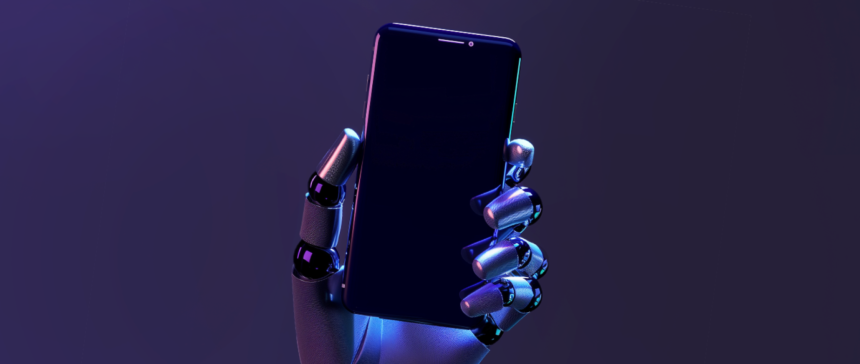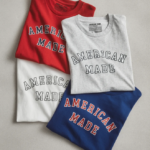“Social media isn’t real” has become a recurring phrase aimed at helping digital consumers separate coveted images and content (with all its tweaks, filters, and crops) from real-world considerations and actual experiences, but the phrase now takes on new meaning. Some of today’s popular influencers aren’t real people at all. They’re the creations of artificial intelligence, and e-commerce companies sometimes use them to reach new audiences and drive sales. Learn more about AI influencers and how they can help promote your business.
What is an AI Influencer?
AI influencers, also known as virtual influencers (VIs), are computer-generated characters designed to resemble real people and promote products and brands on social media platforms.
“AI influencers are becoming popular in the marketing and e-commerce world as they offer a cost-effective and efficient way to promote products and engage with consumers,” said Ariel Sims, senior vice president of paid social at Digitas, a global marketing agency specializing in digital advertising.
AI influencers have their own unique personality, voice and background that can engage (human) followers.
How to use AI influencers in your marketing
As part of a broader digital marketing campaign, marketing professionals can hire AI influencers to create and share content such as product placement photos and unboxing videos on social media platforms in the same way as human influencers. E-commerce brands can also deploy AI influencers to run interactive campaigns such as surveys, quizzes, and contests to increase user engagement and brand awareness.
“In certain situations, it may make more sense to use an AI influencer over a human influencer, such as when cost, control, and niche targeting are important factors,” Ariel says. “AI influencers are also great for experimental campaigns or content ideas that would be difficult for a human to execute.”
AI influencers can be programmed to speak different languages and adapt cultural references, allowing them to connect with audiences in different geographic regions. And unlike real-life influencers who have busy schedules and need sleep, AI-generated influencers can create content continuously, allowing for a steady stream of social media posts to keep their audience engaged.
Benefits of using AI influencers
Hiring AI influencers has many benefits, including:
Control
Companies and brands that create their own AI influencers have full control over their image, personality, and brand messaging. Unlike human influencers, who may make controversial statements or become embroiled in scandals, AI influencers can be designed to maintain a non-controversial persona.
“AI influencers can consistently create content that showcases your brand’s voice and brand image,” Ariel says. “Another benefit is that AI influencers can leverage data and advanced algorithms to create content that’s inspired by people who follow and engage with the brand itself, rather than being influenced by other brands.”
Fee
Compared to human influencers, basic AI influencers offer cost advantages (although the more complex ones can be expensive): no expensive photo shoots, travel arrangements, or constant negotiations for content creation are required. As a result, AI influencers are becoming an attractive option for brands looking to stretch their marketing budgets even further.
“AI influencers are great for productivity and cost control,” says Ariel. “Because they’re not human, they can interact with followers and potential customers 24/7, continuing to build their community and drive engagement.”
innovation
AI influencers allow marketing teams to experiment with new storytelling methods and formats, and allow brands to create compelling content with the help of animation and special effects.
Disadvantages of using AI influencers
The shortcomings of AI influencers are still emerging, but so far they may fall short in the following areas:
credibility
Lack of authenticity is a consistent issue with AI influencer marketing: although AI influencers are visually appealing, some audiences perceive them as not as trustworthy as human influencers.
“Influence inherently relies on authenticity, which is the main reason why AI influencers are fundamentally contradictory – because they’re not authentic at all,” says Dickon Rose, global head of innovation services at global creative agency. Ogilvy‘s Emerging Experience Lab. “They are, by definition, man-made.”
Emotional connection
Because AI influencers are not human, they may not be able to forge a strong emotional connection with their followers. AI technology is still evolving in replicating human expression and interaction, which may hinder its ability to cultivate deep commitment from followers.
“Consumers may also be hesitant to share experiences or communicate with something they associate with ‘robot,'” Ariel says.
ethics
Most importantly, ethical considerations are necessary when using AI influencers. Transparency around the use of AI influencers is essential to avoid misleading consumers, as deception could undermine trust in a brand. Advances in AI tools could exacerbate this issue as it becomes harder to distinguish between real humans and computer programs.
AI influencers to watch
Some of the most well-known and popular AI influencers include:
Rue de Magal
From Brazil Rue de Magal is a virtual influencer created by retail giant Magazine Luiza. A friendly personality, Lu do Magalu serves as a spokesperson for the brand, promoting products, offering styling tips, and engaging with customers on social media platforms. With nearly 7 million followers, Lu’s Instagram feed features product testing and reviews, as well as interviews with customers about their favorite purchases.
Lil Miquela
Released in 2016 Lil Miquela is considered one of the first and most popular virtual influencers. With 2.6 million Instagram followers, Lil Miquela has collaborated with popular brands such as Prada, Calvin Klein and Samsung on sponsored content and social media campaigns. Described on her Instagram profile as a “21 year old robot living in LA,” Lil Miquela promotes products while maintaining a carefully crafted online persona that includes music releases and social commentary.
Now
She has 388,000 followers on Instagram. Now Ima is a popular virtual influencer in Japan (her main target audience is Japan). She has also gained a global following through brand campaigns with fashion brands such as Coach, Fendi, and Prada. Ima represents the future of virtual influencers, TED Talks in Vancouver He will be born in April 2024 with his human creator/counterpart, Sarah Justo.
Shudu
Shudu Shudu is an AI supermodel with over 240,000 followers on Instagram. Country & Townhouses, Nylonand the international version trendShe has contributed to fashion magazines such as Instagram, Instagram and other fashion magazines, while also working with clothing, fragrance and cosmetics brands such as Karl Lagerfeld, Rabanne and Fenty Beauty. Shudu is currently one of the models at Digital Model Agency. Digital.
Meta AI Influencer
Fall 2023Meta has deployed its own community of AI influencers on Facebook and Instagram. These AI characters can interact with users and respond to comments and messages with a consistent voice and style.
Most of them are Micro-influencers—Niche social media accounts with 1,000-100,000 followers. Meta’s AI influencers include: Lorenaa globetrotting traveller who can message you with travel planning tips. Maxa digital chef that provides recipes for easy and quick meals. Cartera dating influencer whose goal is to help her followers date better.
And Meta may not be the only company to launch its own AI influencer agency. TikTok is also Reportedly We are developing our own virtual influencers to promote and sell products on viral video apps.
Frequently asked questions about AI influencers
How to create an AI influencer?
To create an AI influencer, first define your target audience and create an appropriate persona: create a background, personality traits, and visual style. Then use AI tools to create images of your AI character in different settings.
What is an AI Influencer?
AI influencers are computer-generated characters designed to act like real people on social media platforms. AI allows them to interact with their audience in a somewhat automated way, such as replying to comments with programmed messages, and CGI creates the AI influencer’s realistic appearance.
Are AI influencers legit?
Currently, AI influencers are legal and there are no laws or regulations that specifically govern their use. However, there are many ethical considerations to take into account, such as the possibility of misleading your audience or damaging your brand’s reputation.







